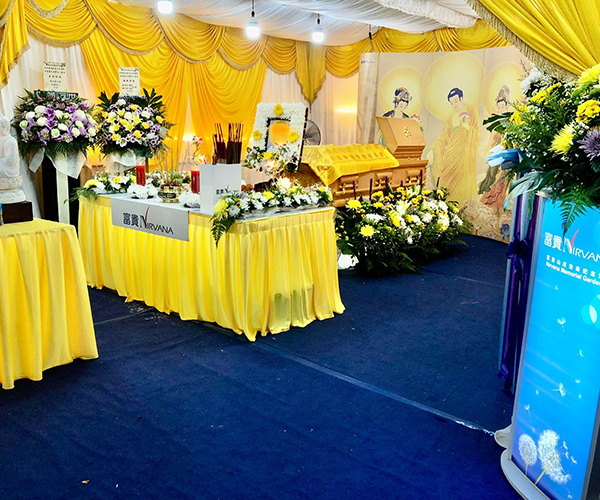


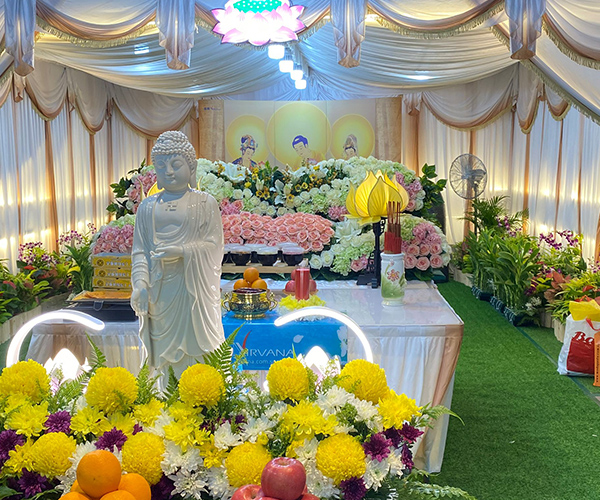
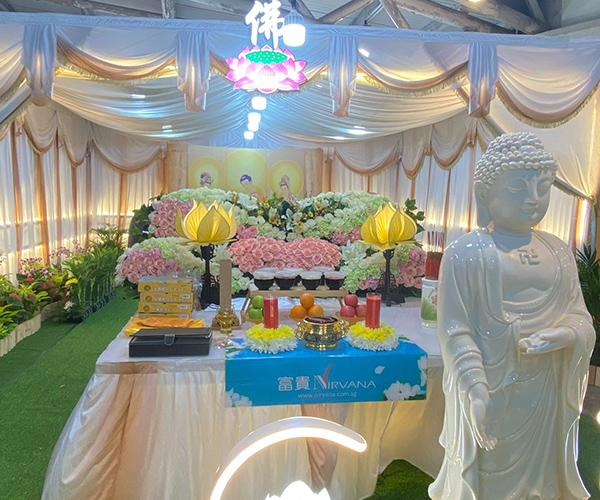
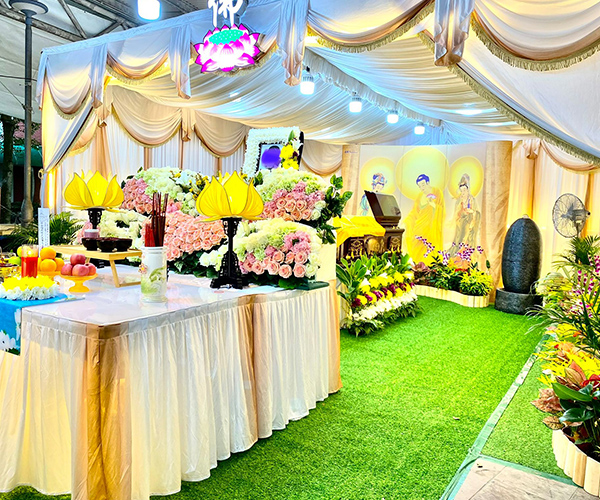
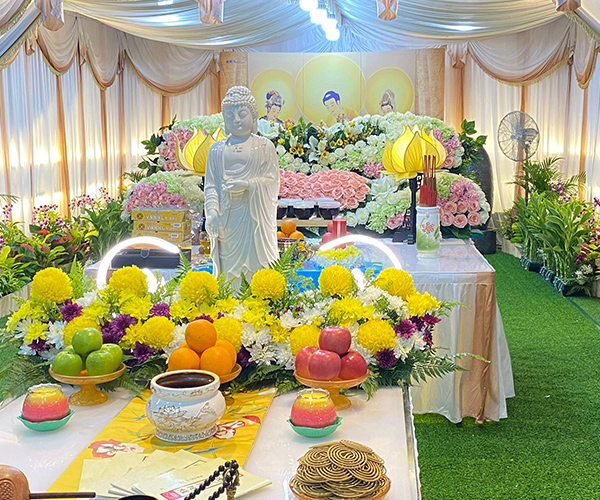
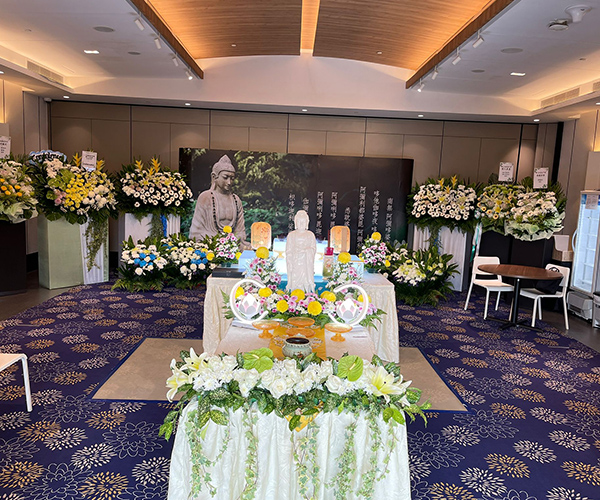
“Everything that has a beginning has an end.”
-Buddha
In Buddhism, death is a regular aspect of existence, and death does not mark the end of life for Buddhists. People in these cultures see death as the beginning of something greater. If you believe that spirits may be located in new bodies after death, you’ll find that this belief is both comforting and comforting.
To assist your loved one’s soul on its passage to the next life, NIRVANA Buddhist Funeral Singapore services offer the most affordable and satisfactory Buddhist funeral services and packages.
Funerals in Buddhism are intended to be modest, respectful, and sad. Buddhist funerals tend to emphasize the notion of rebirth through the cycle of life, known as samsara, rather than the deceased’s passage into the afterlife.
Buddhist funerals are seldom gloomy occasions, even though mourners are likely to attend and may be in a state of sadness. To honor the deceased’s life and commemorate their departure in a meaningful manner, our compassionate staff at NIRVANA is available to assist you in planning a Buddhist Funeral Singapore.
We can assist many individuals in organizing the funerals of their deceased Buddhist friends and family members. For the departed souls who have passed, we provide a peaceful and sacred environment.
Simple, respectful, and somber funerals are intended to be the most effective way to show grief in a Buddhist tradition. According to Buddhist teaching, the burial ceremony must be within one’s financial resources since Buddhism discourages lavish ceremonies.
The corpse must be cleaned and dressed before being placed down in a coffin after death has occurred. The corpse is transported to a hall or funeral parlor, where the funeral wake will be held on the following day. An altar with a photo of the dead, an image of Buddha, as well as offerings of fruits, candles, incense, flowers, wreaths, and banners, is to be put up at the place of the departed.
Monks are often requested to give lectures and perform ceremonies; however, this may also be done by family, friends, and members of Buddhist groups if the circumstances warrant it. It is also possible to play Buddhist poetry recordings and chant in the background during the funeral wake.
Finally, the closing rituals are usually done by the monk, and after the sermon has been given, all attendees must take off their hats and caps as a gesture of respect. Following the conclusion of the wake, the corpse is transferred to a cemetery for burial or to a crematorium for cremation.
For Buddhists, the physical body is only a container for the soul’s journey through life. Cremation is viewed as the preferable method of burying a loved one because they believe in reincarnation, and organ donation is considered a good act by Buddhists.
According to Buddhism following are the significant funeral customs:
To avoid any confusion, the family frequently expresses the anticipated etiquette for individuals attending the gathering. If you are unsure, you can ask them. As a kind of camouflage, the family members don white attire or use a white cloth. Following are some examples of customary Buddhist funeral practices:
NIRVANA is a funeral home in Singapore that is one of the finest in the country. We have a team of experts providing satisfactory services for Buddhist funerals. We have a well-trained, kind, professional service team and have various options, from fundamental to spectacular set-ups perfect for VIPs and large-scale funerals.
At every step, we care for everything and treat families with respect and care. The ritual facilitates the peaceful departure of the departed from this world to the next. As a result, you must choose a NIRVANA Buddhist Funeral Singapore with much expertise. In Singapore, we are well-versed in Buddhist funeral arrangements.
We recognize that each funeral is different and that each circumstance is unique. Our funeral service staff goes above and beyond by providing professional services with compassion and attention to detail, particularly when families are grieving the death of a loved one. We’ll handle the funeral properly and help you plan the ideal way to say goodbye to your loved one.
As Buddhists’ concept of death is based on samsara, their funeral aims to cleanse the past bad karma and reduce its effects on the next life. For this, monks chant to create positive energy around the deceased that will guide him for the next steps of his journey.
Buddhism allows both cremation and burial to choose either one of them, but mostly, they prefer cremation. Because of the scarcity of burial land in Singapore and the burial policies, it is not allowed to bury a body for more than 15 years, and it will eventually have to be exhumed for reburial in a new plot or cremation.
For a Buddhist funeral, the dead body is washed and dressed in plain white cloth. The funeral attendants are also advised to wear simple clothes that do not make them stand out and avoid any gestures of a showoff, such as wearing jewelry.
Buddhism has a unique approach towards death as they view it as a new beginning rather than an end. Buddhists believe that they will born again into a new life as soon as they die until they get free of karma and achieve the state of nirvana, which will set them free of the sufferings of samsara.